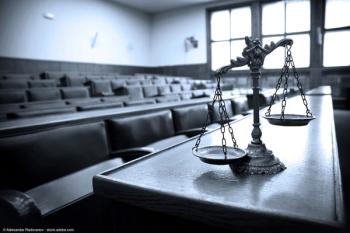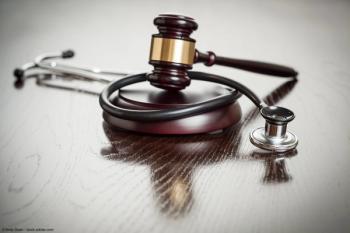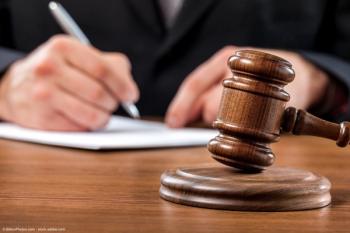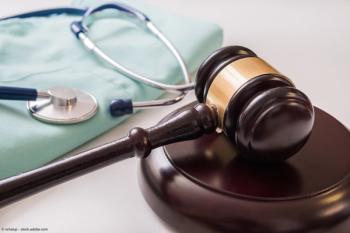
Why physician testimony is so important
"As the primary witnesses for the defense, [the treating physicians] did not build credibility, were not likable, and did not take any responsibility for the medical care of the claimant," writes Brianne Goodwin, JD, RN.
How important is the quality of physician’s testimony-and even his or her demeanor-in a medical malpractice case? Let’s a consider a case that involves the award of over $1.7 million to the estate of a deceased state prisoner for substandard care constituting medical malpractice for approximately 2 years, resulting in death from stage IV urothelial cancer.
How important is the quality of physician’s testimony-and even his or her demeanor-in a medical malpractice case? A case involving an award of over $1.7 million to the estate of a state prisoner who died from stage IV urothelial cancer demonstrates how vital credible, believable testimony is.
The claimant alleged that the defendant (the state) failed to diagnose or properly treat her for cancer of the ureter, which ultimately led to her death while the case was being tried. The court acknowledged the long-held rule that where a state engages in functions such as providing medical and/or psychiatric care, the state is held to the same duty of care as private individuals.
The claimant in this case had multiple complaints of flank pain and hematuria over a 2-year span. When she was transferred to an emergency room for assessment of these complaints, a computed tomography scan revealed moderately severe hydronephrosis and non-obstructing calculi. The hospital diagnosed the claimant with acute abdominal pain and likely ureterolithiasis that had resolved. No follow-up was scheduled.
Also by Brianne Goodwin, JD, RN:
The claimant was then seen three times in the next month at the prison infirmary, each time with flank pain and hematuria. She was again returned to the same emergency department less than 6 weeks from her first presentation with flank pain and dark urine. Another CT scan was performed, showing left hydronephrosis with non-obstructing calculi in the lower pole. The findings were consistent with a left ureteropelvic junction obstruction. The emergency medicine physician consulted with a urologist, who recommended outpatient urology follow-up.
Physicians: Follow-up not recommended
The treating physicians at the prison denied ever being informed that urology follow-up was recommended, yet admitted that there is an ongoing obligation of treating physicians to review previous treatment of a patient in order to provide ongoing medical care. The treating physicians further denied seeing a copy of the CT scan report from the hospital.
After another dozen complaints of flank pain and hematuria over about 2 years, the claimant finally saw a urologist and was diagnosed with urothelial cancer. This diagnosis initially required two surgical procedures including a stent placement and removal of the left kidney, ureter, and bladder cuff. Post-surgical chemotherapy and radiation were commenced and completed. Two years later, the cancer had resurged and metastasized into nearby lymph nodes.
The court’s decision in this case points to a number of contributing factors. While not specific to urology, the points transcend multiple fields of medicine.
On the defendant’s side, the treating physicians at the prison who attempted to defend their care were viewed by the court as disingenuous, flippant, argumentative, and evasive. As the primary witnesses for the defense, they did not build credibility, were not likable, and did not take any responsibility for the medical care of the claimant.
Next:
On the claimant’s side, three medical experts in the fields of urology, internal medicine, and infectious disease (this expert was triple board-certified in the fields of internal medicine, hematology, and medical oncology) were found to be overwhelmingly credible and persuasive. The testimony of these three experts went beyond that of the defense, focusing on multiple continuity-of-care issues, including:
- the lack of complete knowledge of the claimant’s medical history and treatment, as evidenced by a specific recommendation for referral to a urologist that did not occur
- the perception of this particular claimant as a difficult patient and the possible contribution of inadequate medical care as a result of this perception
- the importance of handoff and information sharing when multiple physicians or providers are caring for a single patient
- the presence of flank pain and hematuria over the course of 2 years, in the setting of CT scans demonstrating hydronephrosis.
Read:
The third expert, from a medical oncology perspective, was additionally able to clearly delineate the origin, timing, and spread of the claimant’s cancer, to which there was no rebuttal as the state did not offer an expert witness in this field. Moreover, this expert witness was competent to testify as to the claimant’s diminishment in life expectancy over the course of treatment and the excessive treatment she endured given the delay in diagnosis and treatment.
The case highlights the importance of the quality of physician testimony, and that it be genuine and cooperative. It also points out the asymmetry that existed between the expert witnesses for the two parties. Continuity of care, knowledge of the patient’s medical course and treatment, and perceptions of the patient being difficult were other pitfalls in this case. Ultimately, a large verdict for several years of pain and suffering was awarded to the claimant’s estate.
Newsletter
Stay current with the latest urology news and practice-changing insights — sign up now for the essential updates every urologist needs.






